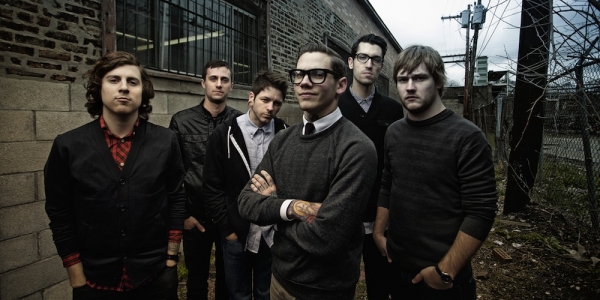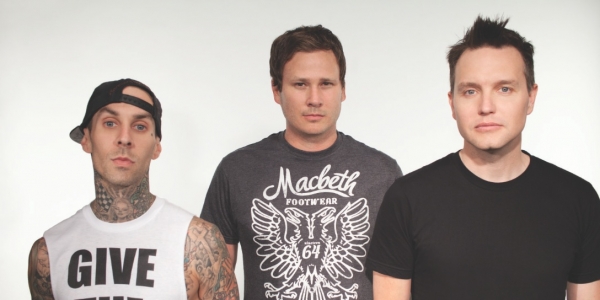“This album [‘Dead Throne’] is true to the scene that we grew up in,” he states. “Really, if anything, it’s the best representation of the band and who we are right now. We’ve always sounded like this but it’s been more of a re-invention with this record, not really taking a new direction. We’ve just super-refined what we are. After six or seven years, we know who we are now, we’re not trying to discover that anymore. We’ve found our heavy sound and we want to keep embracing that and it’s bound to just get better because we’re getting older and better at what we do. Actually, this album is more like a rebellion of a lot of the stuff that’s come after us, the stuff that’s gone about as far away from those hardcore roots as it can.”
Hair-cut bands in skinny jeans, to be more precise, as Poyster laughs. Describing the new album as a rebellion against the poseurs, he says auto-tune should be destroyed because it encourages nothing real and gives the metalcore genre a bad name.
“That’s what the major lyrical themes on the album are about,” Poyster says. “It’s an anti-idolatry theme within this scene. It helps to destroy everything the scene was built on. The music has really taken a back-seat in this genre and it’s really all just been about pushing the haircuts and the fashion and the whole packaged look – I am so sick of kids running around going, ‘look at me, I’m so cool and awesome!’ It’s just so ridiculous. Maybe it’s because we all remember the scene that we grew up in very well, and it was just so different! At the same time, in our town anyway, we were always the odd-man-out. There were a lot of tough-guy hardcore bands which we didn’t quite fit into but at the same time we were never like this new generation either. I’m really over the newer bands pushing up so much of this blippy techno babble nonsense. All they care about is auto-tune, they’re offering up nothing real to the genre.”
There’s no auto-tune involved when you’re working on Dead Throne with Adam Dutkiewicz anyway, as Poyster adds. While the Killswitch Engage guitarist may be known as a massive goofball thanks to his usual on-stage antics, you can be sure he’s a whole different person when it comes to knob-twiddling in the studio.
“Adam took what we were doing and tweaked it into a more accessible direction, but without making it sound commercial or mainstream. He just took what we had and translated it into something more understandable, I guess. He just made the songs sound better structurally and even playing the harsh hand when we needed it, which is something that we’ve never had before from a producer. For example, we’d really love a certain part and we’d be like, ‘let’s just keep it in there’, and he would come back to us saying, ‘yeah it’s great, but does it really serve a purpose?’ When it got chopped and trimmed, it sounded so much better. So it’s taken some flexibility on our part, but it’s been a huge learning curve. Adam is such a goofball and really funny as a person but he’s also very serious when it comes to his work, which was what we wanted because we’re like that too. About 99 percent of the time we’re sarcastic and not serious, but when we’re rehearsing or playing a show, it gets very serious.”
It’s been a work ethic developed due to necessity rather than anything else, according to Poyster, who says that in the band’s early days, there wasn’t much of a support base for The Devil Wears Prada in the small town Dayton, Ohio. And while things are different now for the band, Poyster says he sees it as a blessing in disguise.
“That’s the beauty of it – that we never dreamed we would achieve selling albums and touring all over the world. We never had a plan or a goal, we still don’t. When we started out we just wanted to play songs in whoever’s garage and it was fun because things just happened naturally. The younger bands now plan all that stuff from scratch, it’s no wonder so many of them don’t stay around for long because if you’re that calculated about it then it’s not going to be much fun in the long run. These days they already know a certain sound is going to do well with the media and they know what people want you to do, but when we started we were totally winging it! Nobody cared about us outside a very small community in certain cities around the country. We were able to care more about what we were doing as a kind of defiance I guess, and it made us work a lot harder. My parents were supportive but I think even they had their doubts, they were like, ‘I believe you can do this and I support you, but this is also stupid and you should just go to college – you kids are idiots’.”

